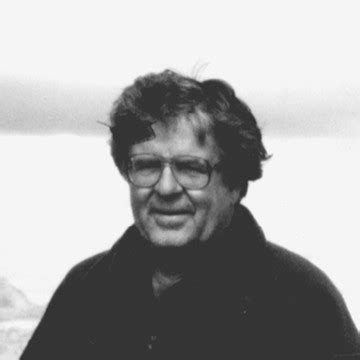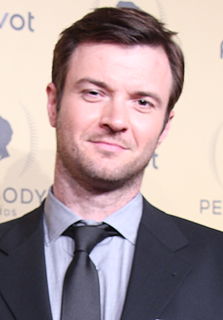A Quote by Daniel Quinn
No story is devoid of meaning ... If you know how to look for it.
Related Quotes
A story is a way to say something that can't be said any other way, and it takes every word in the story to say what the meaning is. You tell a story because a statement would be inadequate. When anybody asks what a story is about, the only proper thing is to tell them to read the story. The meaning of fiction is not abstract meaning but experienced meaning.
The biggest threat to your creativity is the fear that it's already been done, said, created. (So why bother?)
Say it, do it, make it anyway - but tell YOUR story along the way.
The story of how you came to know what you know.
The story of what you want to know more of.
The story of why you do what you do.
The story of how you came to care.
And that's how you create what's never been created before.
My pictures are devoid of objects; like objects, they are themselves objects. This means that they are devoid of content, significance or meaning, like objects or trees, animals, people or days, all of which are there without a reason, without a function and without a purpose. This is the quality that counts. Even so, there are good and bad pictures.
When you look into the faces of these quiet creatures who don't know how to tell stories--who are mute, who can't make themselves heard, who fade into the woodwork, who only think of the perfect answer after the fact, after they're back at home, who can never think of a story that anyone else will find interesting--is there not more depth and more meaning in them? You can see every letter of every untold story swimming on their faces, and all the signs of silence, dejection, and even defeat. You can even imagine your own face in those faces, can't you?
The writer's job, after all, is not to dictate meaning, but to give the reader enough pieces to create his or her own satisfying meaning. The story is truly finished—and meaning is made—not when the author adds the last period, but when the reader enters the story and fills that little ambiguous space, completing the circuit, letting the power flow through.
I believe that we are a story-driven species and that we understand how things are put together, in the context of narrative. It's a shame that science hasn't been taught that way, in a long time. It's usually the fact completely devoid of any human experience or any idea of how the scientist came to that conclusion.
I honestly would tell anyone young to start looking at stories and learning story, because I think that’s the next step after people go, ‘OK, I’ve had enough of that improvisation, I’ve had enough of those short comedy bits. Tell me a story, tell me a more complex story, something that lasts and maybe has a little more meaning to it.’ Don’t ever look at what’s happening now; look at what’s coming next.






































